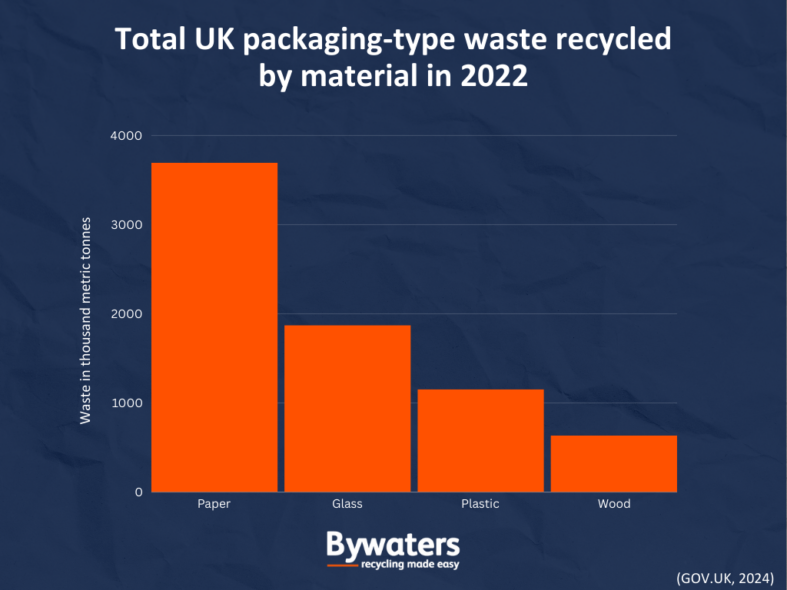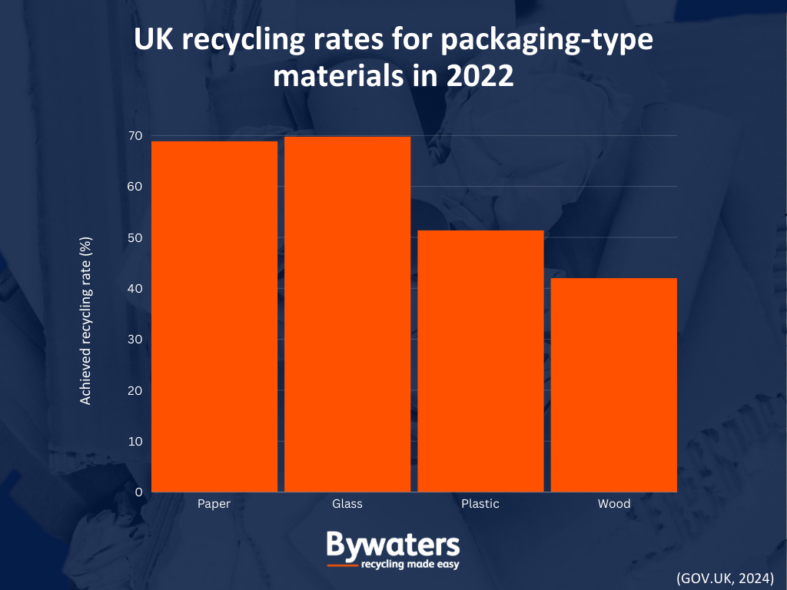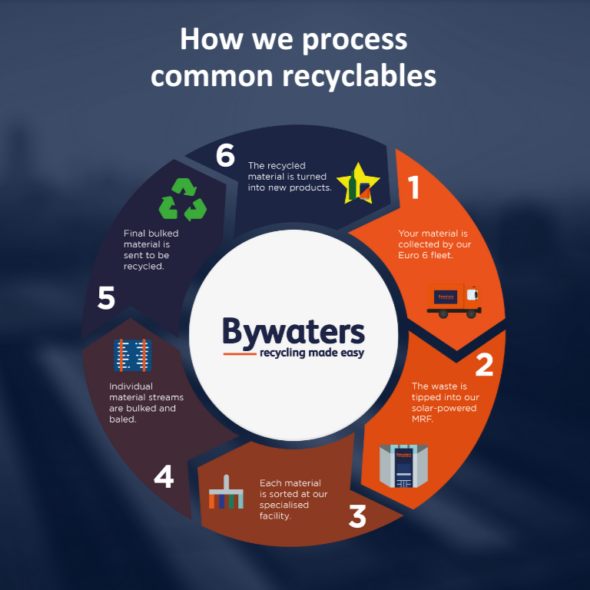Contact us today for your Free Quote
Around the world, 4 billion trees are cut down annually for paper, ever wonder what becomes of it once it’s tossed away?
On any given day, it might dawn on you the scale of paper usage. According to the BBC, the UK alone uses almost 10 million tonnes of paper every year, with around 80% being recycled. This suggests that the remaining 2 million tonnes of paper has to be disposed of through means that are considered less sustainable than recycling, requiring more trees to be felled to fill the gap.


Nevertheless, there is room for improvement on our part. According to research by WRAP, around 84% of UK households are unknowingly contaminating their recycling bins, largely due to a lack of clarity.
To bridge these gaps, we wrote this educational piece to delve into how paper is recycled, its benefits, and what happens to unrecycled paper, as well as some key advice on recycling properly.
How is Paper Made
Before looking at paper recycling, first, it is important to understand the process involved in creating “virgin paper”. Fundamentally, paper is a dried compressed sheet of plant fibres, matted together under pressure, causing the fibres to form strong but flexible bonds.
Most paper is made from trees, with large quantities of logs (generally quick-growing conifers) transferred to industrial processing plants, pulped with water and sometimes chemicals. This pulp is meshed, screened and dried, leaving the paper. This process makes the many grades of paper and cardboard available today.
Benefits of Recycling Paper
Recycling paper not only helps conserve natural resources such as trees but also reduces energy consumption and greenhouse gas emissions in production if it were made from scratch. By diverting paper from landfills, we can significantly cut down on waste and contribute to a more sustainable future. To quantify this, here are some statistics regarding the benefits of paper recycling:
- Recycling paper cuts emissions by around 70% when compared to producing it from raw materials.
- For every tonne of recycled paper produced, around 17 trees could be saved.
- Recycling paper can save 80% of the water associated with virgin production.
With a growing focus on environmental actions and our impact on climate change, small changes to consumer habits can have a big effect. Recycling more paper globally would have a significant impact on worldwide environmental targets.
How is Paper Recycled?
Having understood the benefits of paper recycling, the question is, how is used paper transformed back into clean, functional products for us to use? With environmentally conscious recyclers such as Bywaters, it’s simple really…

- We collect your paper from your site, either separately or as part of Dry Mixed Recycling.
- This material is taken back to our solar-powered materials recovery facility (MRF), where our state-of-the-art segregation machinery sorts it into different grades and types.
- At Bywaters, our process ensures the highest quality material is separated and transported to specialised reprocessors.
- To remove contaminants, including, glue, plastic and staples, the paper is washed in warm soapy water. This material is then transported to a large container where it is mixed with water to form a slurry.
- A variety of materials can be added to the slurry to form a range of products, including cardboard.
- This pulp is meshed, screened and dried, leaving paper! This process makes the many grades of recycled paper and cardboard available today.
Unlike metals and glass, paper can’t be recycled over and over an infinite number of times. Every time paper is recycled, the plant fibres get shorter until the paper can no longer be recycled. That shouldn’t stop us from recycling, however, if such or other types of paper are unfit for recycling, what happens to them?
What Happens to Unrecyclable Paper?
Remember that remaining 2 million tonnes of unrecycled paper that we discussed at the start? This could be either because it is unrecyclable or it is disposed of improperly.
A lot of the time, unrecyclable paper traditionally ends up in landfills. However, landfills are bad for several reasons. They take up vast amounts of land, disrupting natural habitats and reducing biodiversity.
Fortunately, advanced recyclers such as Bywaters have a sophisticated network of sustainable facilities, providing a solution to salvaging the resource potential from unrecyclable paper waste.
Through a specialised partnership, Bywaters sends this kind of material to WfI facilities, helping to power 144,000 homes across Britain. For every tonne recovered with us through this means, around 675 kWh of energy is produced.
How to Recycle Paper
With the previous section in mind, it shouldn’t stop you from recycling paper properly if it isn’t contaminated. To help, we wanted to share a few easy-to-remember rules to ensure you recycle correctly every time.
Avoid Contamination
It’s essential to avoid contamination. Make sure your paper is clean. Dry and remove any food residues, liquids, or foreign materials.
Even small amounts of other materials can compromise the entire batch of paper recycling to varying degrees. An article by Circular Online suggests that nearly 20% of England and Wales’ waste cannot be recycled due to contamination.
Be Weary of Composite Materials
When recycling paper, be cautious with items like coffee cups and certain packaging materials, as they often contain plastic liners or coatings that render them non-recyclable. Even if they look like paper, these items can contaminate your recycling bin. In fact, coffee cups are such a notorious composite of multiple materials, that Bywaters offers a dedicated coffee cup recycling service. By avoiding these seemingly recyclable items, you help keep your paper recycling clean and effective.
Sustainable Paper Recycling with Bywaters
We have been specialising in sorting paper for recycling for decades, and have refined our process to provide the best product possible to reprocessors. If you produce paper at your site, we can provide you with the best recycling solution possible to ensure your waste is recycled sustainably.
Ready to turn a page in your recycling journey? Contact us today to discover our paper recycling services and see how we can help you transform paper waste into a sustainable future.


